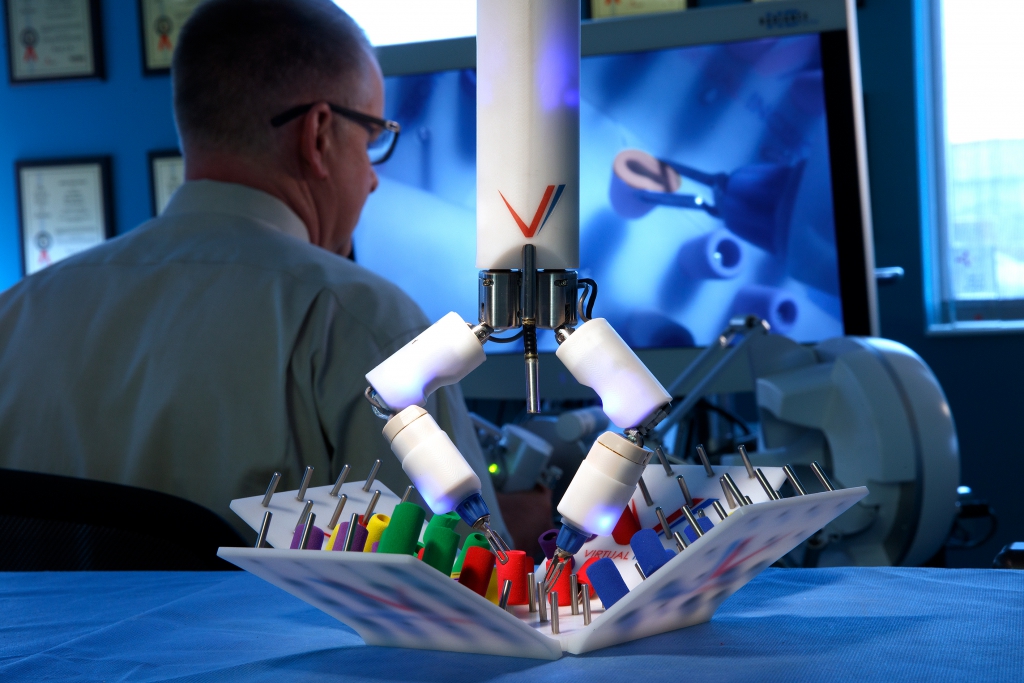Tiffany Lee, February 3, 2020
Faculty startup Virtual Incision receives another $20M investment
Virtual Incision, a Nebraska Innovation Campus-based medical device company founded by University of Nebraska faculty, announced earlier this month it raised $20 million in Series B+ investment funding.
The venture capital funding will support regulatory and clinical programs leading to commercialization of the company’s surgical robot platform, called MIRA, which stands for “miniaturized in vivo robotic assistant.” The first-of-its-kind robot aims to transform abdominal surgeries – particularly colon resections – from open, highly invasive surgeries into minimally invasive, laparoscopic procedures with significantly shorter recovery times.
The funding may help Virtual Incision launch a clinical trial of MIRA in human patients undergoing colon resection surgeries. The company recently filed for an investigational device exemption from the Food and Drug Administration, which, if granted, will enable Virtual Incision to initiate the trial.
The latest round of funding brings the total investments in Virtual Incision to more than $50 million since 2006, when University of Nebraska-Lincoln engineer Shane Farritor and University of Nebraska Medical Center surgeon Dmitry Oleynikov founded the company. John Murphy of Pleasanton, California, joined as CEO in 2010.
Existing investor Bluestem Capital led the funding surge, in addition to PrairieGold Venture Partners, Genesis Innovation Group and others.
“We are very excited about the opportunity to move our system forward. We think we can have a significant impact on patient care,” said Farritor, Lederer Professor of Engineering and Virtual Incision’s chief technology officer.
Weighing in at just 2 pounds, MIRA’s small size makes it significantly easier to use than its surgical robotic counterparts. It’s also highly portable, circumventing a need for the dedicated space and specialized infrastructure required by other robot systems.
Traditional abdominal surgeries require doctors to work through a large, open incision. Using MIRA, surgeons use a bedside console to control the robot, which is inserted into the abdomen through a single small incision. This difference is expected to cut the recovery time from months to days.
The company is working to expand its product line beyond the original MIRA robot for colon resections, Farritor said. In the works is a family of procedure-specific mini-robots for additional operations like hernia repair, gallbladder removal and others.
The latest round of venture capital funding – the largest for a Lincoln-based company since Hudl received $72.5 million in 2015 and $30 million in 2017 – marks another phase of robust growth for Virtual Incision.
Last year, the company expanded its headquarters at NIC, moving into a facility that integrates research and development, quality control, assembly and test procedures – a first of its kind in Nebraska. In 2017, it raised $18 million in equity funding for its robotic platform, and in 2016, the device became the first miniaturized robot to carry out complicated surgical tasks inside a living human.






